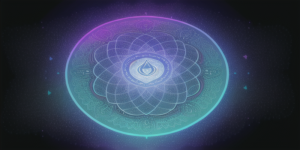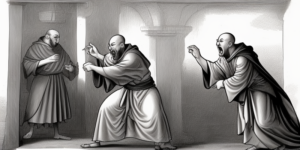The Manomaya Kosha, the mental sheath, and explore its profound significance in our spiritual journey. As we embark on this exploration, I invite you to engage in a conversation with your own consciousness, to become more aware of the subtle workings of your mind.
The Mano-Maya Kosha, the third sheath is our mind, our thoughts, emotions, memories, and personality. It is the realm of our subjective experiences, the seat of our desires, fears, joys, and sorrows. It is where our perceptions are processed, where our reactions are born, and where our identities are formed.
Now, let’s pause for a moment. I invite you to reflect on your own mind. How often do you find yourself lost in a whirlwind of thoughts? How often do you identify yourself with your emotions, saying “I am angry” or “I am sad”? How often do you let your past memories define your present moment? How often do you let your mind dictate your reality?
If you observe closely, you’ll notice that the mind is in a constant state of flux. Thoughts come and go, emotions rise and fall, memories fade and resurface. The mind, like a restless monkey, jumps from one thought to another, from one emotion to another, creating a continuous stream of consciousness.
The mind can be likened to a vast repository, a storage unit filled with information, knowledge, and experiences that we have gathered over our lifetime. It is a dynamic library where thoughts, ideas, and emotions are catalogued and retrieved according to our energy levels and states of consciousness.
Observe how your thoughts fluctuate throughout the day in tandem with your energy levels. In the morning, as your energy rises, your mind may buzz with plans for the day, ideas for tasks, and anticipation for what’s to come. As the day progresses and your energy levels ebb and flow, so do your thoughts. They rise and fall like waves in the ocean, each wave bringing a new thought, a new emotion, a new desire.
New ideas and desires emerge and then recede, replaced by others in a continuous cycle. Emotions too, change throughout the day, influenced by our interactions, our environment, and our internal state of being. One moment you may feel joy, the next moment sadness, then anger, then peace. This constant flux of mental and emotional states is a testament to the dynamic nature of the mind.
However, when we step back and observe this ceaseless activity, we may realize something profound. It seems that this constant flux of thoughts and emotions is beyond our direct control. We can’t command a thought to arise or an emotion to subside. They seem to have a life of their own, influenced by myriad factors both within and outside of us.
Here’s the key question: Are you your mind? Or are you the observer of your mind?
We are not our minds. We are the unchanging witness, the observer of the mind. The mind is an object of our awareness, just like the body and the energy. It changes continuously, yet we, the observer, remain constant.
So, I invite you to step back and observe your mind. Watch your thoughts as they arise and dissolve. Notice your emotions without getting entangled in them. Let your memories come and go without clinging to them. Be the silent witness, the unchanging observer of your mind.
This realization can be both unsettling and liberating. Unsettling because it challenges our notion of control and identity. Liberating because it opens the door to a deeper understanding of our true nature. We are not the ever-changing thoughts and emotions. We are the unchanging witness, the consciousness that observes the rise and fall of thoughts, the ebb and flow of emotions. We are the silent observer, ever-present, ever-aware, ever-unchanging. This is the journey of awareness, the journey beyond the Mano-Maya Kosha, the journey to the luminous self.
This practice of awareness, of observing the mind without judgment or attachment, is a powerful tool for spiritual growth. It helps us detach from our mental patterns, our habitual reactions, and our conditioned beliefs. It helps us realize that we are not our thoughts, emotions, or memories. We are the consciousness that is aware of them.
As we cultivate this awareness, we begin to transcend the Mano-Maya Kosha. We begin to experience a sense of inner peace and freedom, a sense of being unbound by the fluctuations of the mind. We begin to realize our true nature as the unchanging, eternal consciousness.





